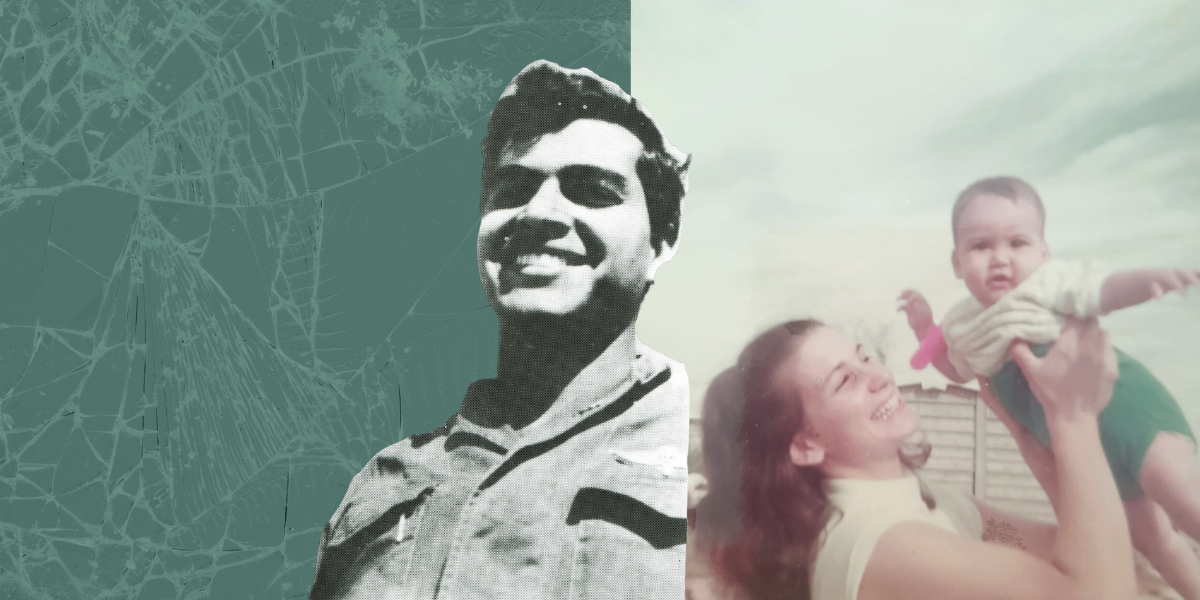Israeli Scene
The Yom Kippur War Marked the End of My Naïveté

It was Yom Kippur, October 1973. Three years since I had moved to Israel. I was sitting in front of my in-laws’ house in Kfar Vitkin with my baby daughter, Sarit, enjoying the fragrance of the guavas growing nearby and the calm that comes with the absence of the clatter of everyday life. As I was changing Sarit’s diaper, I jumped when two fighter jets screamed overhead, so low I could smell the fumes.
Pilots often buzzed their neighborhoods to “give regards” to their families—but on Yom Kippur?
In the house, Meir, my husband’s eldest brother, was on the phone. On Yom Kippur? When he hung up, he turned to us and said, “I guess there’s going to be a war.”
Yossi, the middle brother, had called to report that military vehicles were whizzing by on the coastal road bordering his moshav, Beit Herut, only a few miles from Kfar Vitkin.
I looked at my husband, Avramik. After fielding a call from the manager of our moshav, Petza’el, he was preparing to return to our home near the Jordanian border. It wasn’t clear at the time if he would stay to protect the moshav or join his reserve unit (he ended up with his unit). He took the M16 rifle that he always had with him and started for the door.
I remained with my in-laws on their moshav near Netanya, where we waited for television and radio outlets to report the news once their personnel, who had been home for the holiday, reached the stations. Israelis were strong and invincible and always on alert. I wasn’t afraid.
We heard on the news that Syrian forces had broken through to the Golan Heights and Egyptian troops had crossed the Suez Canal and destroyed our first line of defense. My moshav neighbor and close friend, Ezra Katzav, was doing his annual reserve duty near the canal. “Regards to the Egyptians,” I had told him as he left for the canal a few days earlier. That’s how Israelis joked back then. Now I was haunted by the fear that he was either dead or captured.
We prayed that Jordan would not join the war, opening another front and putting our moshav in immediate danger. Of the 18 men who lived in Petza’el, only three remained to help manage the farm and operate our defense. The moshav needed me, but I was stuck at my in-laws’ home. Finally, one of the members, Haim, came to get Sarit and me.
We were on alert as we drove through Tulkarem and Nablus, Arab towns where I would often stop for pita and hummus, but which were now seen as potentially hostile. Nevertheless, nothing I saw on the drive indicated war—until I arrived at Petz-a’el. It had become more an army base than a moshav: Soldiers in camouflage, tents, trucks and armored personnel carriers had moved in.
Our bomb shelters were readied, their doors unchained, floors swept, and blankets and medical supplies stocked. Women traded off day care duty and working in the fields and kitchen. I didn’t care what I did. I needed to be useful.
On the morning of Simchat Torah, I awoke to joyous singing. Soldiers were dancing with Torah scrolls, lifting them high above their heads as they wound their way around their tents and past our buildings. Here on our ridge above the Jordan Rift Valley, after almost two weeks of war and separation from their families, these soldiers, observant and nonobservant, took a moment to celebrate the completion of the annual cycle of Torah reading.
The joy was short-lived.
The war was not yet over and the following week, an unfamiliar car entered the moshav. Two men and a woman wearing military uniforms got out and walked toward the office, where I was working. Had I any experience in wars, I would have run the other way and not looked them in the eye. But I welcomed them and offered cold water.
“We’re looking for the nurse,” the woman said.
I watched as our nurse led them down the path toward our living quarters. The faces of some women with more experience than I—wives, sisters and daughters to someone on active duty—darkened when they spied the trio.
Roni, whose husband was fighting in the South, screamed at them to go away. She refused to open her door, because until she did, her husband was still alive. But he wasn’t. Pini Ron was killed in Egypt on October 22, just days before a cease-fire went into effect. Roni was barely three months pregnant.
My fears about Ezra came true. He was buried in a military ceremony on March 5, 1974, once his remains had been located several months after the war. Ezra’s funeral and the more than 2,600 like it ushered in a new era for Israel, one of turmoil, mass protests and the resignation of Prime Minister Golda Meir.
It also ushered in the end of my naïveté. The blind trust that I had had in Israel’s leaders was gone, while my determination to build up the moshav and raise my family there was strengthened.
Galia Miller Sprung moved to Israel in 1970. She was a founding member of Moshav Petza’el in the Jordan Rift Valley, where she lived for 10 years. She now resides in Tzufim and is writing a memoir of her moshav years.









 Facebook
Facebook Instagram
Instagram Twitter
Twitter
Leave a Reply